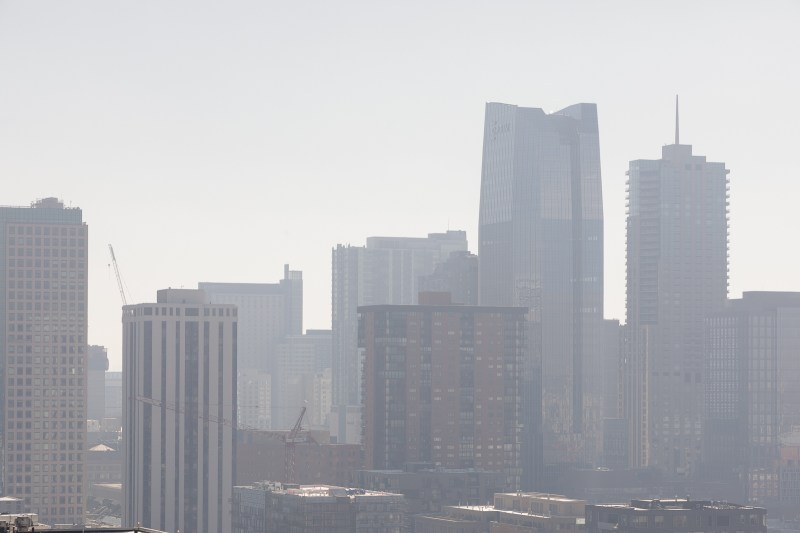Denver’s Air Thick With Fossil Fuel Pollution as 11,000 Scientists Declare Climate Emergency

Thirty scientists from Colorado signed onto a paper declaring the world in a state of climate emergency — a bit of news that hit just as a thick brown cloud of fossil-fuel residue hung over the Denver Metro.
The Colorado scientists joined more than 11,000 others from around the world who made six policy recommendations in the journal BioScience, including the need to keep fossil fuels in the ground. Streamlining the state’s transportation system could reduce those emissions, said Scott Denning, a professor of atmospheric science at Colorado State University, who did not sign the paper but largely agrees with its conclusions.
“Transportation is inefficient in our region,” he said. “And that contributes to our greenhouse gas production.”

To reduce both carbon emissions and the pollutants that contribute to the region’s brown cloud, state and local governments need to do more to reduce driving, said Danny Katz, director of CoPIRG, an advocacy group.
“One of the most significant things we need to do is get more people out of their cars,” he said. “Transit is a lot cleaner than a bunch of different people driving a bunch of different cars. And walking and biking are pollution free.”
Commuter trains, like the Regional Transportation District’s A, B and G lines, generate 76 percent lower carbon emissions per passenger mile than someone driving alone, according to the Federal Transit Administration. Light rail discharges 62 percent fewer emissions, while buses produce 33 percent less.
Although the Regional Transportation District is set to see its fifth straight year of ridership declines, Katz points to people flocking to new transit services that provide a better experience to riders, including the A line airport train, Bustang regional bus service and the Flatiron Flyer between Denver and Boulder.
“The Flatiorn Flyer is a good example. It takes thousands of people a day on the U.S. 36 corridor. It’s convenient. It’s timely. It goes to where people need to go,” he said while suggesting that similar service could cover Federal Boulevard, Colorado Boulevard and transportation to ski resorts. “There are ways to move significant numbers of people via transit. We just need more of that.”

And those high-quality transit experiences must be expanded widely, he says.
“We’re seeing this on a small scale. We need to do all of these things in a much bigger way,” said Katz. “We have a moment now where we need to go big.”
But creating such a transit system will cost around $1 billion per year for walking, biking and public transit projects around the state, according to a vision laid out in a 2016 report from CoPIRG and the Southwest Energy Efficiency Project. It proposes a network of bus rapid transit projects that cover the Denver Metro and a plan to improve walking, biking and transit across the state.
But that proposal comes when no new transportation funding is in sight. Voters rejected two ballot measures last year, Propositions 109 and 110, which would have funded highways, county roads and other modes of transportation. Next year, RTD faces a $40 million budget cut. And Proposition CC, which voters will decide today, could provide some new state transportation funds — but it is expected to fail.
Katz says it’s time elected officials, including Gov. Polis or Mayor Hancock, step up.
“We’re going to need leadership on all levels. State leadership. Local leadership,” he said. “Right now we’re seeing small steps, but we have a moment where we need to go big.”
But political leadership will require changes at an extraordinary scale, said Denning. And it’s not just elected officials and scientists who should get involved.
“This is a political question,” he said. “And everyone has a right to weigh in on how to get our economy off of fossil fuels.”
Correction: This story has been changed to reflect the correct name of the Flatiron Flyer. A previous version of this story referred to it as the Frequent Flyer.
Support the nonprofit mission of Streetsblog Denver. Give $5 per month.


